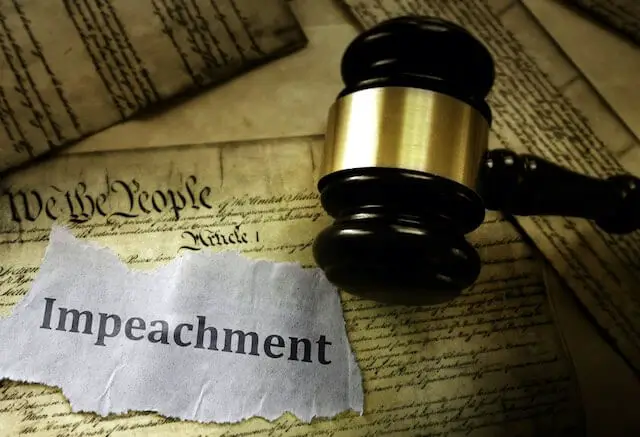The big news coming out of Washington these days is the impeachment trial of President Trump. Federal employees may be wondering if they will find themselves violating the Hatch Act if they were to discuss the trial when at work.
It’s been over a year since the Office of Special Counsel offered formal guidance on the matter. The agency put out guidance on discussion of impeachment in the workplace, and it created such an uproar that it issued clarification a few days later.
OSC said that it issued the guidance in the first place because it was getting so many questions from federal employees as to whether or not it was acceptable to use terms such as “resistance” or “#resist” in the workplace.
The ruckus over the original email guidance came from those who felt it went too far. The National Treasure Employees Union (NTEU), for example, said at the time, “NTEU is concerned about the Office of Special Counsel’s latest Hatch Act guidance because its absolute ban on certain topics of discussion is inconsistent with the purposes of the Hatch Act. This guidance is a broad reach that employees may find confusing. It could unnecessarily have a chilling effect on employees’ First Amendment free speech.”
Guidance on Discussing Impeachment
OSC said in its 2018 revised guidance that when it comes to federal employees discussing impeachment in the workplace, it was not intended to prevent all discussions of the subject.
This is what OSC said:
OSC has been asked whether an employee may display items that advocate for the impeachment of the president, who is a candidate for reelection. OSC has advised against this activity because OSC considers advocacy for or against the impeachment of a candidate for federal office to be political activity under the Hatch Act.
However, merely discussing impeachment, without advocating for or against its use against such a candidate, is not political activity. For example, two employees may discuss whether reported conduct by the president warrants impeachment and express an opinion about whether the president should be impeached without engaging in political activity. An employee may not, however, display in his or her office a poster that states “#Impeach45” or place a “Don’t Impeach Trump” bumper sticker on a government-owned vehicle because such conduct advocates for or against impeachment of a candidate for federal office.
The Debate Resurfaces
It’s been over a year since OSC issued its guidance, but that apparently isn’t the end of the debate.
The American Federation of Government Employees (AFGE) recently filed a motion in court in an attempt to force OSC to rescind its guidance. AFGE says the guidance is overly restrictive and that it “effectively barred federal workers from expressing views about the impeachment of President Donald Trump while at work.”
AFGE filed a lawsuit last year against the guidance as well but said that because the impeachment trial is front and center in the news now, “the issue has become more urgent as the policy is chilling the free speech rights of federal employees…”
AFGE described its beef with the guidance as follows:
In the guidance, which equates the concept of “impeachment” with “removal from office,” OSC confusingly advises that federal employees are allowed to discuss whether the president should or should not be impeached, but they are not allowed to advocate for or against impeachment — a meaningless distinction that has made silence the only safe option for workers wishing to avoid potential punishment.
OSC specifically said in the guidance that advocating for or against a candidate’s impeachment is considered political activity and could get federal employees into hot water with the Hatch Act.
OSC also said, however, that the guidance only applies when federal employee are on duty or in the workplace. “It does not impose any restrictions on the ability of employees to engage in political activity while off-duty and away from the workplace,” wrote OSC.
OSC also encouraged federal employees to contact the agency with questions related to Hatch Act guidance that they may have.



